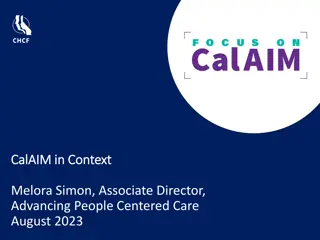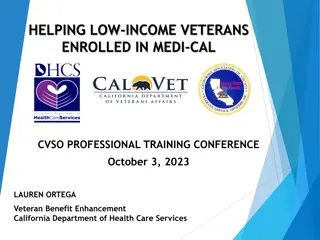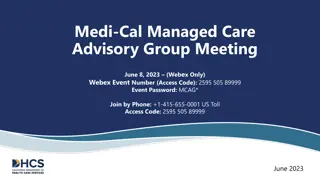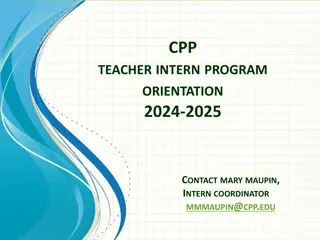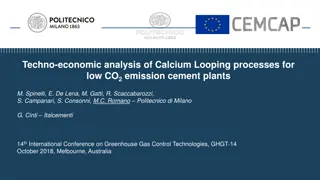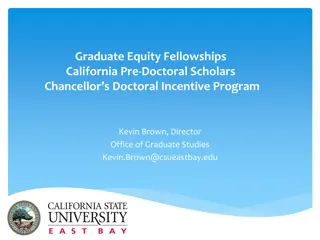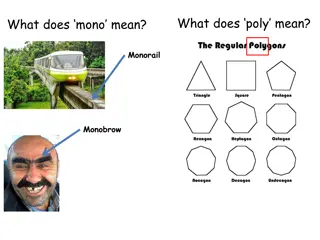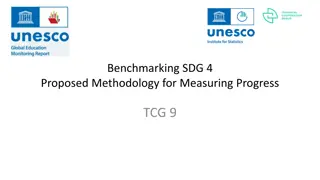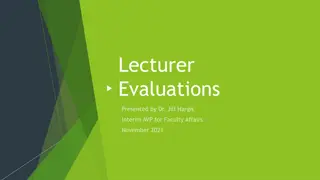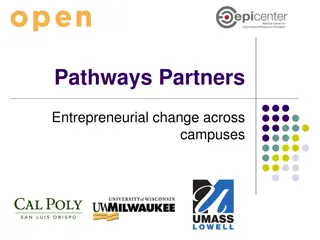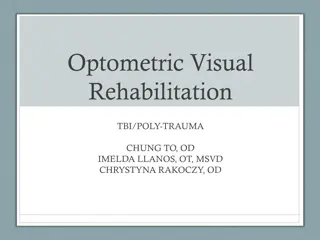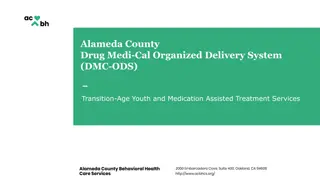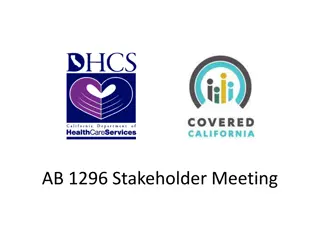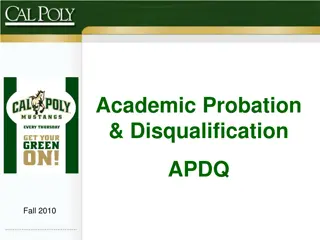Understanding Expected Academic Progress at Cal Poly Fall 2010
Fall 2010 guidelines at Cal Poly emphasize transparent, equitable, and supportive policies for student success, ensuring clear expectations, continuous policy review, and monitoring through Expected Academic Progress (EAP) for degree progression. Advisors assist students in creating academic plans to address EAP deficiencies.
Download Presentation

Please find below an Image/Link to download the presentation.
The content on the website is provided AS IS for your information and personal use only. It may not be sold, licensed, or shared on other websites without obtaining consent from the author. Download presentation by click this link. If you encounter any issues during the download, it is possible that the publisher has removed the file from their server.
E N D
Presentation Transcript
Expected Academic Progress Fall 2010
Agenda Guiding Principles Student Success EAP Summary Review EAP Policy Maintaining EAP Maximum Units Questions Fall 2010
Guiding Principles Student s path to graduation should be transparent, flexible and as simple as possible Students should be treated equitably through the consistent application of policy Students should have university-wide support in reaching success regardless of their affiliation(s) Students deserve communication in a timely manner Fall 2010
Guiding Principles Upon admission to Cal Poly, students should have a clear understanding of the expectations being placed upon them Policies and procedures should support the student s learning experience Continuous review of our policies and practices should be performed regularly Policies and practices should promote quality programs and efficient use of resources Fall 2010
Student Success Gives both students and advisors a tool to monitor whether or not a student is on track Provides an advising opportunity Fall 2010
Expected Academic Progress (EAP) EAP is defined as making appropriate degree progress each AY by earning a specified number of degree applicable units that meet major, support, general education, concentration, and free elective (if applicable) requirements that are directly associated with the student s declared major. EAP is monitored for all students every Spring to determine if the student has an EAP deficiency Fall 2010
Expected Academic Progress (EAP) Students may be required to meet with their advisor where s/he will discuss their academic progress and assist them in creating a reasonable academic plan to help them get back on track. If a student continues to have an EAP deficiency, the department/college may place a hold on the students registration for the next term or place them on administrative probation Fall 2010
Expected Academic Progress (EAP) Those students who have a demonstrated need to attend Cal Poly on a part-time basis for at least three consecutive quarters may be considered exempt from the EAP policy Students who have to comply with an externally imposed set of degree progress standards may continue to follow those guidelines. Other students for whom the EAP policy represents undue hardship may appeal for exemption Fall 2010
Maintaining EAP - Freshmen Students who are enrolled in four-year degree programs are expected to graduate in twelve quarters. Normally, this will not include summer terms Summer term is considered as an opportunity to make up for the lack of progress in prior quarters or to bank progress for future quarters Fall 2010
Maintaining EAP - Freshmen To maintain EAP the following standards should be met by the end of each respective year: 1st Year: completion of at least 20% of the total number of units required for the degree 2nd Year: completion of at least 45% of the total number of units required for the degree Fall 2010
Maintaining EAP - Freshmen 3rd Year: completion of at least 75% of the total number of units required for the degree 4th Year: completion of 100% of the total number of units required for the degree Fall 2010
Maintaining EAP UD Transfers Ideally, students who enter Cal Poly as UD Transfers and who are enrolled in four-year degree programs are expected to graduate in six quarters. EAP policy allows UD Transfers nine quarters to complete their degree requirements at Cal Poly Normally, this will not include summer terms - summer term is considered as an opportunity to make up for the lack of progress in prior quarters or to bank progress for future quarters Fall 2010
Maintaining EAP UD Transfers To maintain EAP the following standards should be met by the end of each respective year: 1st Year: completion of at least 55% of the total number of units required for the degree 2nd Year: completion of at least 80% of the total number of units required for the degree Fall 2010
Maintaining EAP UD Transfers 3rd Year: completion of 100% of the total number of units required for the degree Fall 2010
Maximum Units Freshmen Students graduating on time (i.e., 12 quarters) have no cap on the number of units they may complete at Cal Poly Students who do not graduate on time may complete no more than 24 Cal Poly units above the number required for the degree. Exceeding the allowable 24 Cal Poly units may result in a hold being placed on the student s registration or the student being placed on administrative probation Fall 2010
Maximum Units UD Transfers Students graduating on time (i.e., 9 quarters) have no cap on the number of units they may complete at Cal Poly Students who do not graduate on time may complete no more than 24 Cal Poly units above the number required for the degree. Exceeding the allowable 24 Cal Poly units may result in a hold being placed on the student s registration or the student being placed on administrative probation Fall 2010
THE Working Group: Mary Pedersen, CAFES Debra Valencia-Laver, CLA Penny Bennett, CLA Wendy Spradlin, CLA Dan Walsh, CENG Fred DePiero, CENG Stacey Breitenbach, CENG Matt Moelter, CSM Dick Zweifel, CAED Ellen Notermann, CAED Shannon Stephens, Athletics Sean Vahey, ITS Susan Sparling, Student Affairs Rachel Fernflores, Academic Senate Jim Maraviglia, Marketing and Enrollment Development Cem Sunata, Registrar Fall 2010
Questions Fall 2010


